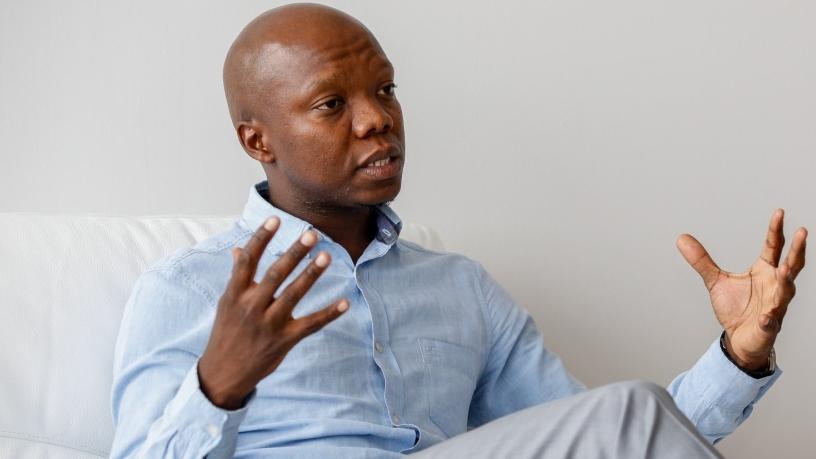
Well-known local entrepreneur and media personality Thabo Molefe is expanding his footprint in the digital media space, with plans to launch a video-on-demand (VOD) streaming platform later this year.
Thabo Molefe, commonly known as Tbo Touch, says the offering, which will be called THD, will showcase original African content as well as a mix of Hollywood movies and series as from October.
He estimates it will cost close to R45 million to establish and he has secured seed funding from the Industrial Development Corporation (IDC).
"The platform will offer video via apps and the Internet, and will provide streaming in ultra-high-definition resolution," says Molefe.
"I have met numerous content creators. We have added 18 videographers and directors in partnership with the IDC. They have pumped good money into the business to accommodate our innovative plans for the coming two years. We need to be able to create our own stories, not have Hollywood come to Africa and write our stories. That era has arrived."
Molefe says THD will also sell its original content to other platforms and networks around the world. "Distributors are buying the content while we are still creating it. We can't keep telling the Mandela story and expect that to do well on cinema screens worldwide."
Although there are no set price figures for THD as yet, Molefe says the service will offer video priced more aggressively than competitors.
"If we look at the war between Netflix and DStv, Netflix is winning because it is giving compelling content at a very good price to the audience. This is a similar situation with the ongoing battle between [metered] taxi drivers and Uber. At this point, the winner in the room is the one who can bring an affordable platform that gives one quality service."
VOD services are also gaining traction in Africa, with players like Naspers-owned ShowMax and Cell C's Black making inroads.
According to Transparency Market Research, the VOD market is forecast to produce opportunities worth $73.90 billion by the end of 2024, substantially more than the market's evaluated worth of $39.63 billion as of 2017.
Online radio play
Molefe is also founder of Touch HD, an online digital radio station he established two years ago. The station, available via a mobile app on both iOS and Android, is said to be one of the fastest growing online radio stations in the land after reaching a million connections in November last year. Touch HD also has a video streaming partnership with VOOV, a social live streaming site, which enables listeners to watch what is happening in studio.
He points out that the majority of listeners are on Android platforms (80%), while 15% are on laptops and desktops, and the remaining 5% on other devices.
According to the station's figures, over 50 000 people have downloaded the app and close to 100 000 podcasts have been downloaded to date.
Data must fall
Molefe is not oblivious to the fact that the high price of data will be a stumbling block to the success of such platforms. As part of the founders of the #DataMustFall movement, Molefe says lower data prices need to be set as a top priority by government.
"We do realise there is a bigger battle out there. Until data is considered a basic human right in this country, anybody who is an innovative creative is going to fail because connection is needed to facilitate these inventions. The world lives online these days and information is shared online."
Molefe took the battle as far as presenting the #DataMustFall user case to Parliament's ICT committee in 2016.
"It is in the hands of ICASA as the regulatory body to ensure data costs decrease. We don't need to wait this long for the regulatory body to understand what's happening on the grassroots level. The government of today needs to prioritise the significance of data costs the same way they prioritise the price of electricity because it is also a basic need."
Share